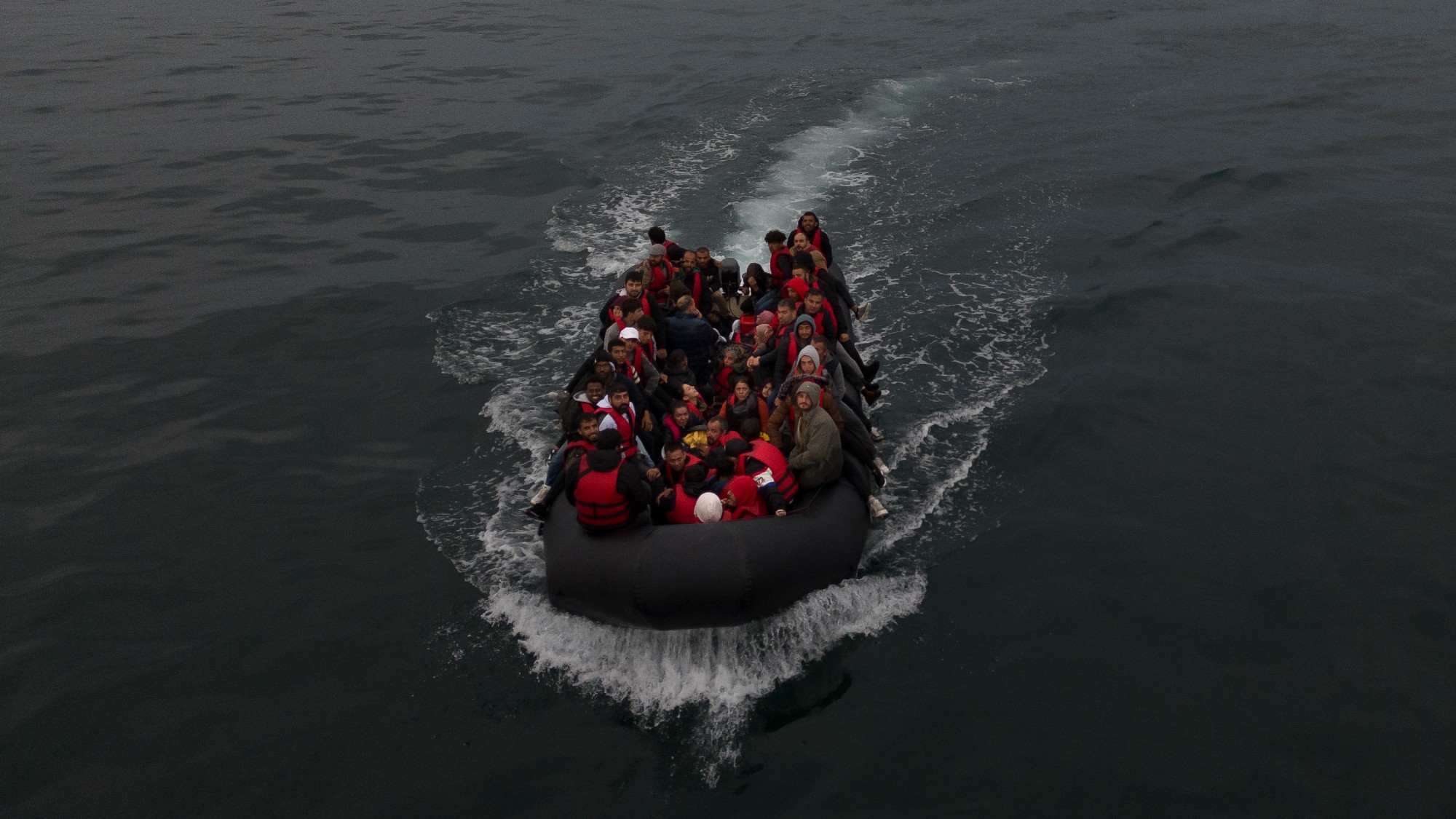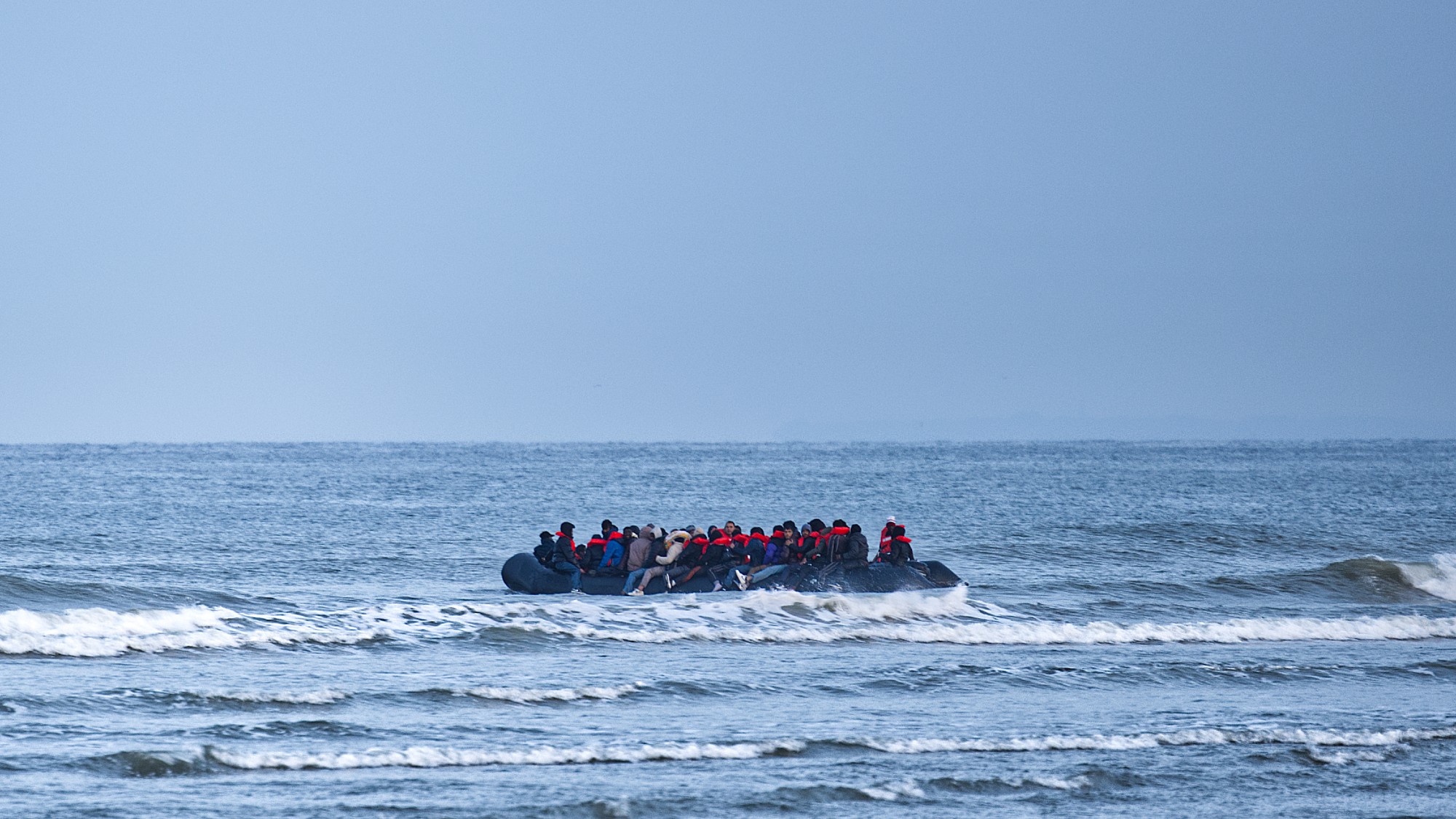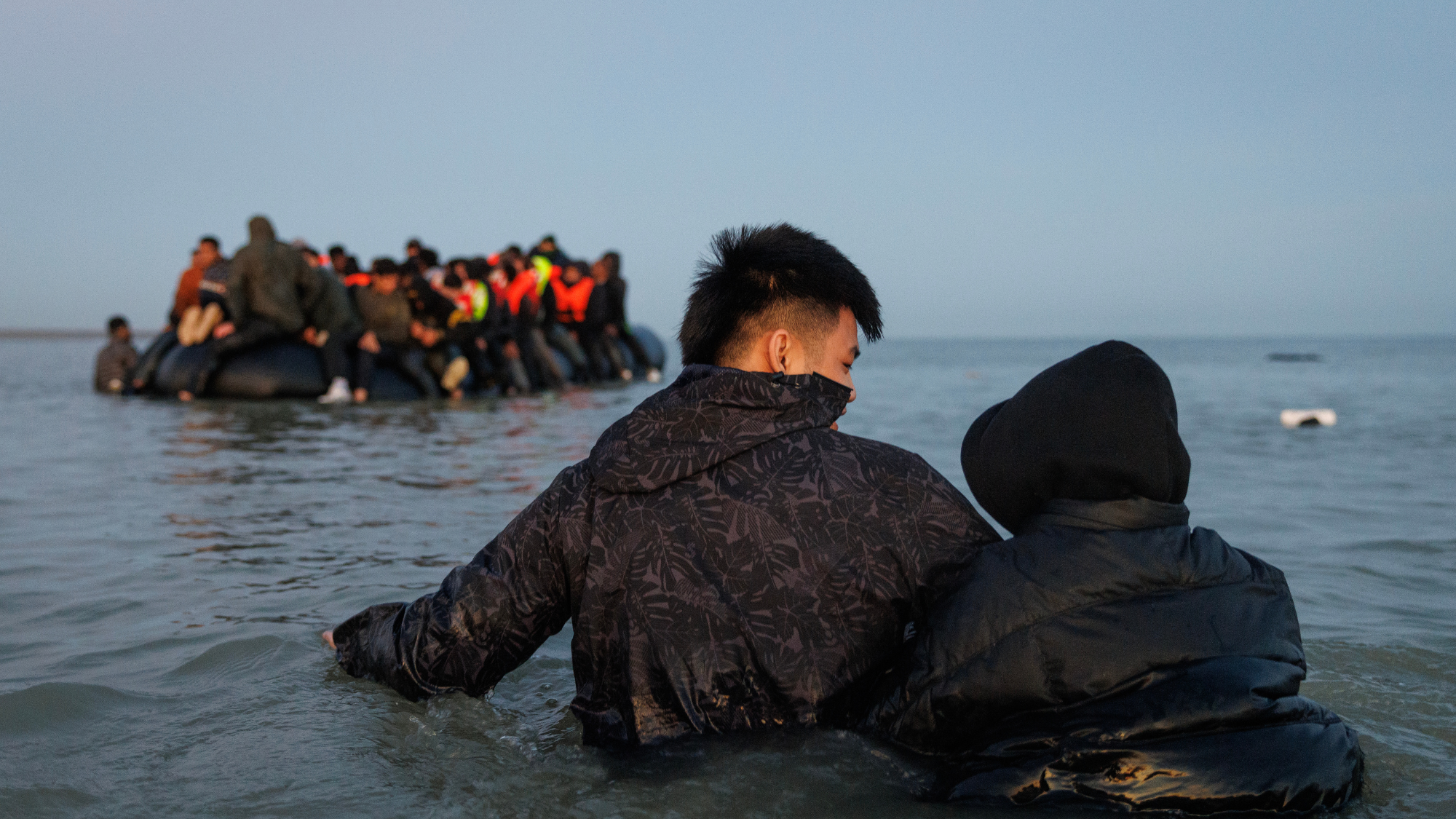The UK's asylum trap
The UK asylum system is widely acknowledged to be broken. It's also an electoral 'wedge issue' between the Tories and Labour

A free daily email with the biggest news stories of the day – and the best features from TheWeek.com
You are now subscribed
Your newsletter sign-up was successful
More than a third of the 67,337 asylum applications made in the UK in 2023 came from applicants who had arrived by small boats across the Channel.
The arrival of large numbers of irregular arrivals by boat since 2018 (initially sparked by improved security on travel routes and Covid restrictions) has increased both the overall asylum numbers and the political salience of the issue, particularly among Conservative voters and in "red wall" former Labour seats won by the Tories in 2019.
Where did asylum rights originate?
The idea that you ought to be able to claim protection abroad if you're facing persecution in your home country is as old as written history, but was enshrined in international law after the Second World War – first in the 1948 Universal Declaration of Human Rights, then in the UN Refugee Convention of 1951.
The Week
Escape your echo chamber. Get the facts behind the news, plus analysis from multiple perspectives.

Sign up for The Week's Free Newsletters
From our morning news briefing to a weekly Good News Newsletter, get the best of The Week delivered directly to your inbox.
From our morning news briefing to a weekly Good News Newsletter, get the best of The Week delivered directly to your inbox.
The latter defines a refugee as someone who cannot return to their home country "owing to a well-founded fear of being persecuted for reasons of race, religion, nationality, membership of a particular social group, or political opinion". It committed signatories, such as the UK, to the principle of "non-refoulement": that asylum seekers should not be deported to countries where they might be in danger; large numbers of refugees from Hitler's Germany and Stalin's USSR had been killed after being forcibly returned. Although this is controversial today, the UN convention does not state that asylum must be claimed in the first safe country reached after leaving the country of origin.
How many people seek asylum in Britain?
In 2023, there were 67,337 asylum applications in the UK, covering 84,425 people (some applications cover whole families). In 2022, there were 74,751 asylum applications. These are at the upper end of the figures for the past 30 years, which peaked at 84,132 in 2002 and dropped to a low point of 17,916 in 2010.
Recent asylum figures are considerable, but they are insignificant as a proportion of total immigration, which reached 1,264,000 (or 764,000 net) in 2022. They are also smaller than the numbers arriving via official refugee schemes: in 2022, 154,600 Ukrainians arrived, the largest single group of refugees to the UK in its history. Britain's asylum figures are fairly low by European standards: there were 13 applications for every 10,000 inhabitants of the UK in 2022, compared with an average across the EU of 22 per 10,000.
How do you get asylum in Britain?
There are schemes allowing refugees from Ukraine and Hong Kong to come to live in Britain. But technically, to claim asylum you have to be in the UK. Asylum seekers must present themselves either to an immigration official at a port of entry, or to the Home Office's "intake unit" in Croydon. This means entering the UK either by using a visa for tourism or study, or, more often, irregularly or "illegally", such as being smuggled in a small boat, or on a train or lorry.
A free daily email with the biggest news stories of the day – and the best features from TheWeek.com
The first step in the process is a screening interview, to determine the applicant's country of origin. If that country is deemed safe, the applicant is likely to be detained and, in theory, returned. For the others, the next step is a "substantive interview", followed by a judgment (which can be appealed). If the Home Office agrees the applicant has "a well-founded fear of being persecuted", they get "leave to remain", which can lead to UK citizenship. In recent years, some two-thirds of applicants have been granted asylum at initial decision; about a quarter of the rejects get it on appeal.
Afghanistan and Albania have been the most common countries of origin in recent years; 99% of Afghan refugees were accepted at first instance in 2022, but just 9% of Albanians. Of the other top nations, nearly all claims from Eritrea, Sudan and Syria are accepted, as are about 85% from Turkey and Iran, and lower percentages from Pakistan, India and Bangladesh.
Why is the system 'broken'?
One reason is because of the large backlog: at the end of last year there were about 95,000 cases awaiting an initial decision. Asylum seekers mostly aren't allowed to work, and most are housed by the Home Office, either in detention centres, isolated "nondetained accommodation" such as the Bibby Stockholm barge or the former RAF base at Wethersfield; or in cheap hotels. If destitute, they're given £49.18 a week for living costs, falling to £8.86 a week for those in accommodation that provides meals.
Most asylum decisions used to be made within six months, but the average wait in 2022 – the most recent year for which figures are available – was 21 months. The delays are expensive: the system cost £3.96 billion in 2022-23, compared with £500 million a decade earlier. And the situation is compounded by the difficulty of deporting failed asylum seekers.
Why is deportation difficult?
Legally, people who are refused asylum are liable to removal, either to their country of origin, or a third, safe country. However, the proportion of failed applicants being deported has fallen significantly. According to Oxford’s Migration Observatory, in 2010 more than 10,000 were deported, about 60% of refused asylum applications. By 2020, it was 1,565, or 10% of refused applications.
To a large extent, this is because of Brexit: under the EU regulation known as Dublin III, it was possible to return asylum seekers to nations in the EU through which they had passed; this is no longer possible. The Government has increased removals to some nations of origin, notably Albania, as well as Iraq and Iran, but not enough to compensate.
Where does Rwanda fit into this?
The Rwanda scheme, announced in April 2022, allowed any asylum seeker entering the UK "illegally" after 1 January 2022 from a safe country, such as France, to be sent to Rwanda for processing, and to stay there if granted asylum. It was designed to deter boat crossings and as a solution to the removals problem. However, it ran up against the non-refoulement principle in the courts: Rwanda was deemed not safe. The Government responded by passing emergency legislation in January, declaring that it was, in fact, safe. It had also made profound changes to asylum with the Illegal Migration Act 2023.
What did the Illegal Migration Act 2023 do?
It has been decried by critics as an attempt to abolish the asylum system. It made claims submitted by anyone who had arrived in the UK in breach of immigration rules, and who'd passed through a safe country – i.e. nearly all of them – permanently inadmissible. It also imposed a duty on the Government to remove them to their home country, or a third, safe country (meaning, as things stand, Rwanda). Even if the scheme were to go ahead, it will take perhaps a few thousand this year. This would leave the nearly 100,000 who have claimed asylum since the act passed in limbo: inadmissible, but stuck in the UK.
What is Labour's policy?
Labour will scrap the Rwanda scheme if it wins the election. Instead, Keir Starmer plans to use counterterrorism powers against gangs smuggling people across the Channel, and to work with the EU on a returns policy. Whether this will "stop the boats" is questionable. As of 26 May, over 10,000 people had crossed the Channel in 2024 – which suggests it will be the biggest year for arrivals yet. Rishi Sunak says the Rwanda scheme will go ahead "if I'm elected"; so far, only one asylum seeker, who went voluntarily, has gone there.
-
 ‘The West needs people’
‘The West needs people’Instant Opinion Opinion, comment and editorials of the day
-
 ECHR: is Europe about to break with convention?
ECHR: is Europe about to break with convention?Today's Big Question European leaders to look at updating the 75-year-old treaty to help tackle the continent’s migrant wave
-
 What does the fall in net migration mean for the UK?
What does the fall in net migration mean for the UK?Today’s Big Question With Labour and the Tories trying to ‘claim credit’ for lower figures, the ‘underlying picture is far less clear-cut’
-
 Asylum hotels: everything you need to know
Asylum hotels: everything you need to knowThe Explainer Using hotels to house asylum seekers has proved extremely unpopular. Why, and what can the government do about it?
-
 The end of ‘golden ticket’ asylum rights
The end of ‘golden ticket’ asylum rightsThe Explainer Refugees lose automatic right to bring family over and must ‘earn’ indefinite right to remain
-
 What’s behind Europe’s sharp drop in illegal migration?
What’s behind Europe’s sharp drop in illegal migration?Today's Big Question Fall in migrant crossings won’t head off tougher immigration clampdowns
-
 Judge blocks Trump's asylum ban at US border
Judge blocks Trump's asylum ban at US borderSpeed Read The president violated federal law by shutting down the US-Mexico border to asylum seekers, said the ruling
-
 Asylum: Only white Afrikaners need apply
Asylum: Only white Afrikaners need applyFeature Trump welcomes white Afrikaner farmers while shutting down the asylum program for non-white refugees


